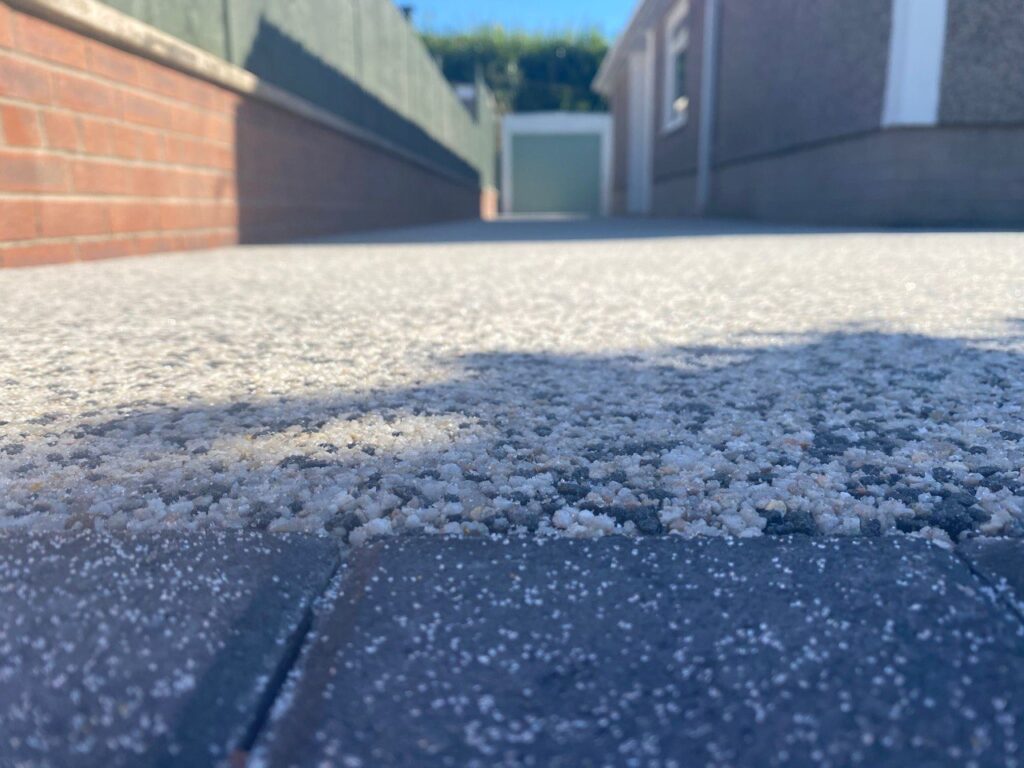Why Tarmac is the Perfect Choice for Farm Roads and Agricultural Use
Farm roads and agricultural pathways face unique challenges due to heavy vehicle traffic, variable weather conditions, and constant use. Choosing the right surface material is crucial for durability, functionality, and cost-effectiveness. For farms in Haverhill, Suffolk, and the surrounding areas, tarmac offers an ideal solution for building and maintaining reliable farm roads.
In this article, we explore the reasons why tarmac is the perfect choice for agricultural use and how it can meet the demands of farm environments.
The Demands of Farm Roads
Farm roads must withstand significant wear and tear due to heavy vehicles, such as tractors, trailers, and livestock transporters. These roads also endure fluctuating weather conditions, including rain, frost, and heat, which can compromise less durable surfaces.
Key Requirements for Farm Roads
- Durability: The road surface must handle constant use without cracking or degrading.
- Cost-Effectiveness: Materials must offer value for money, considering the extensive length of many farm roads.
- Low Maintenance: Farm roads should require minimal upkeep to reduce long-term costs and disruption.
- Weather Resistance: The surface should perform well in both wet and dry conditions to ensure year-round usability.
Why Tarmac is Ideal for Agricultural Use
Tarmac, or tarmacadam, is a popular surface material for roads and driveways. Its unique properties make it particularly well-suited to the needs of agricultural environments.
1. Exceptional Durability
Tarmac is highly durable and can withstand the heavy loads and constant use typical of farm roads. Its ability to handle the weight of large vehicles and machinery makes it a practical choice for farms with frequent traffic.
2. Cost-Effective Installation
Compared to other materials, tarmac is relatively affordable to install, making it ideal for long stretches of farm roads. Its durability further enhances its cost-effectiveness, as it reduces the need for frequent repairs or resurfacing.
3. Low Maintenance Requirements
Tarmac is easy to maintain and can last for many years with minimal upkeep. Simple measures, such as patching small cracks or resealing the surface, can extend its lifespan significantly.
4. Weather Resistance
One of tarmac’s key advantages is its ability to perform well in various weather conditions. Its smooth surface allows rainwater to drain away effectively, reducing the risk of water pooling or erosion. Tarmac is also resistant to frost damage, making it suitable for farms in colder climates.
5. Smooth and Safe Surface
The even finish of tarmac creates a smooth surface for vehicles, reducing wear and tear on tyres and machinery. It also improves safety for farm workers, livestock, and vehicles by minimising the risk of slips or accidents on uneven or loose surfaces.
6. Versatile Applications
Tarmac is not limited to farm roads; it can also be used for pathways, parking areas, and access roads, providing a consistent and reliable surface across the property.
Environmental Benefits of Tarmac
Modern tarmac products often incorporate recycled materials, making it a more sustainable choice for farm roads. Additionally, its longevity and low maintenance needs reduce the environmental impact associated with frequent repairs or replacements.
Professional Tarmac Installation for Farm Roads
To maximise the benefits of tarmac, it is essential to ensure proper installation by experienced professionals. High-quality installation ensures the road surface is durable, level, and capable of withstanding heavy use.
Why Choose Professional Installation?
- Expertise: Professional contractors understand the unique requirements of farm roads and can tailor the tarmac surface to suit your property’s needs.
- Precision: Proper grading and compaction are crucial for a long-lasting, smooth finish.
- Durability: Experienced installers use high-quality materials and techniques to create a robust surface.
Why Tarmac is a Better Option Than Alternatives
While other materials, such as gravel or concrete, may be used for farm roads, tarmac offers distinct advantages:
- Gravel: Although inexpensive, gravel requires frequent maintenance to address displacement and potholes.
- Concrete: While durable, concrete is more expensive to install and can crack under extreme pressure or temperature fluctuations.
Tarmac strikes the perfect balance between durability, affordability, and ease of maintenance, making it the preferred choice for farms.
Conclusion
Tarmac is a practical, cost-effective, and durable solution for farm roads and agricultural pathways. Its ability to handle heavy use, resist weather damage, and require minimal maintenance makes it the ideal choice for properties in Haverhill, Suffolk. Whether you’re upgrading existing roads or building new ones, tarmac provides a long-lasting surface that supports the demands of agricultural work.
If you’re considering tarmac for your farm roads, Haverhill Driveways offers professional installation services tailored to meet your needs. Contact us today to discuss your project and ensure your farm roads are built to last.
Call us on: 01440 840 590
Click here to find out more about Haverhill Driveways
Click here to complete our contact form and see how we can help with your driveway needs.

